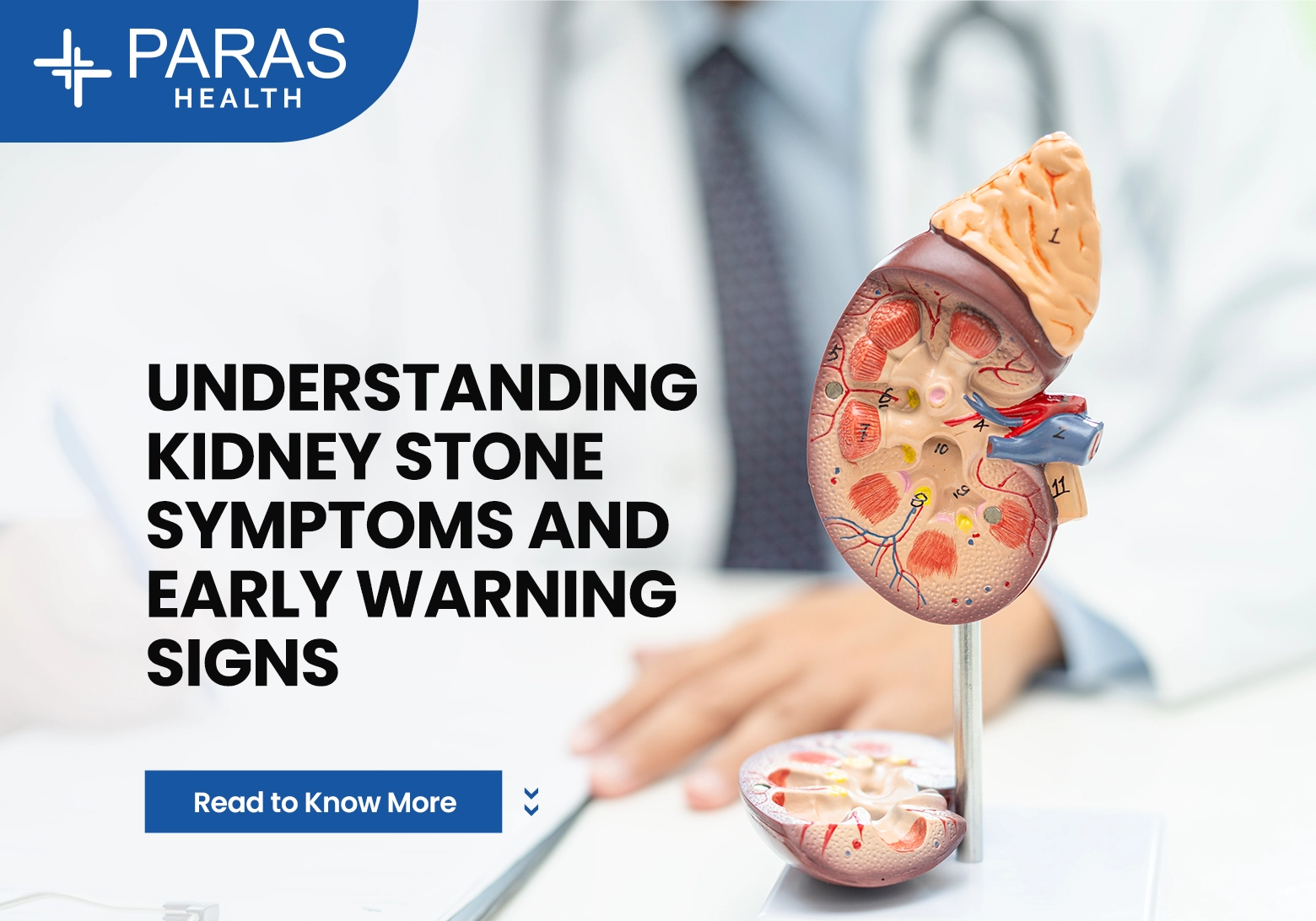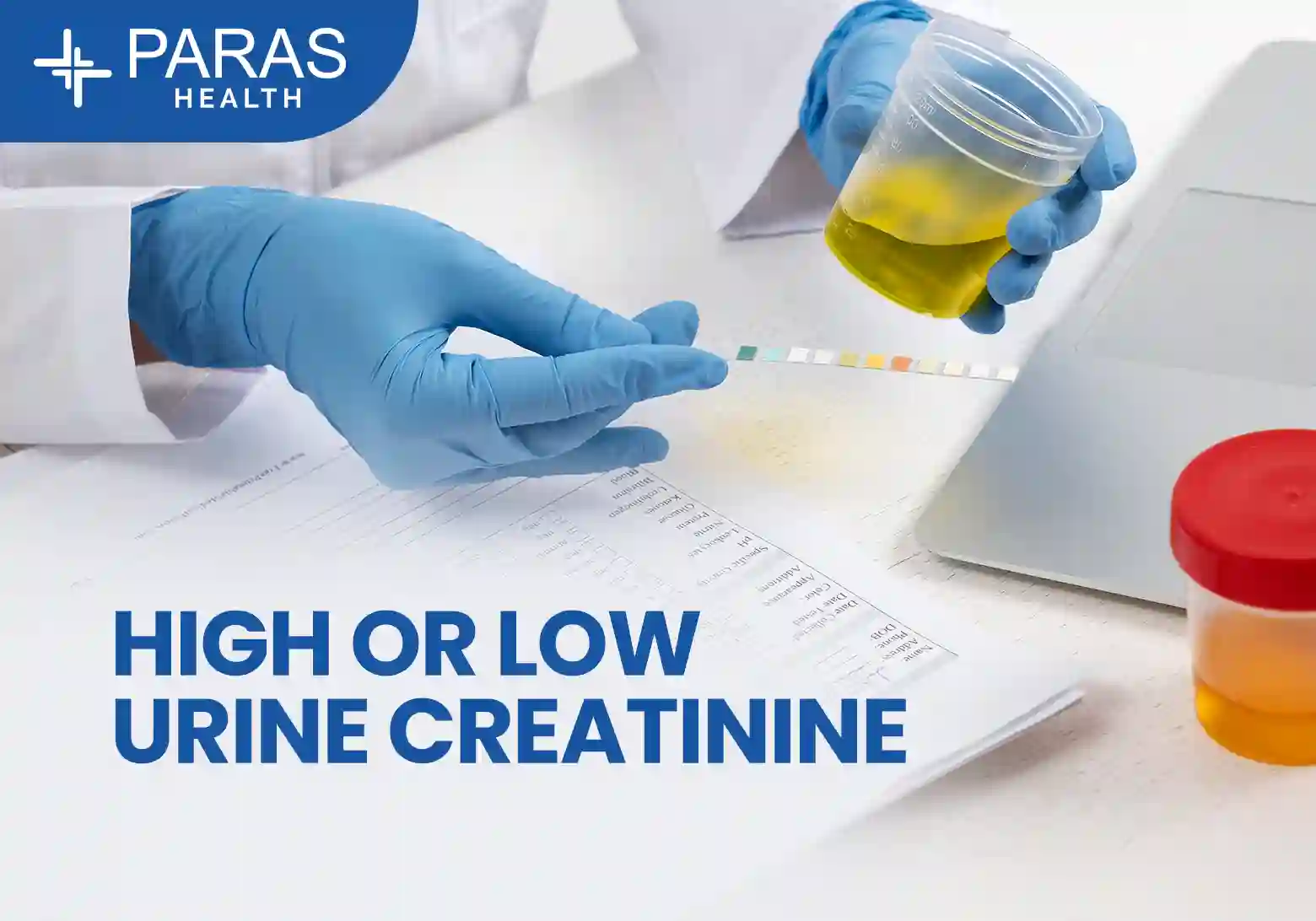Understanding Kidney Stone Symptoms and Early Warning Signs
Aug 29, 2025
Kidney stones are a common health issue that affect millions of people around the world every year. These hard, crystal-like deposits form when minerals and salts build up inside the kidneys. While some stones are small and pass unnoticed, others can cause severe pain and complications. The key to managing them is early detection.
In this blog, we’ll explore kidney stone symptoms and early warning signs, so you know when it’s time to seek medical care.
What Are Kidney Stones?
Kidney stones (also called renal calculi) are solid deposits that form when substances like calcium, oxalate, and uric acid become concentrated in the urine. Over time, they stick together, forming stones of various sizes—from as tiny as a grain of sand to as large as a golf ball.
Common Kidney Stone Symptoms
- Severe Back or Side Pain
- One of the first and most common signs of kidney stones is sudden, sharp pain in the back, side, or lower abdomen. The pain may come in waves and shift as the stone moves through the urinary tract.
- Pain While Urinating
- Many patients experience burning or sharp pain when passing urine, which indicates that the stone may be moving through the ureter.
- Blood in Urine (Hematuria)
- If your urine looks pink, red, or brown, it could be due to blood in urine caused by a kidney stone scratching the urinary tract.
- Frequent Urination
- A constant urge to urinate or passing small amounts of urine frequently is another warning sign, especially when combined with pain.
- Cloudy or Foul-Smelling Urine
- Kidney stones can increase the risk of infections, which may cause cloudy urine with a strong odor.
- Nausea and Vomiting
- Severe kidney stone pain often triggers nausea and vomiting, as the body reacts to intense discomfort.
- Fever and Chills
- If you have fever along with kidney stone symptoms, it could be a sign of infection—a medical emergency that requires immediate attention.
Early Warning Signs of Kidney Stones
Recognizing early symptoms is crucial. Some early warning signs include:
- Mild back pain or discomfort that gets worse over time.
- Needing to urinate more often than usual.
- Changes in urine color (dark, cloudy, or reddish).
- Pain that shifts from the back to the lower abdomen.
If these signs are ignored, the pain may intensify, and complications like urinary tract blockage or kidney damage can occur.
How Are Kidney Stones Diagnosed?
Doctors may use the following tests to confirm kidney stones:
- Ultrasound: Safe and non-invasive imaging test.
- CT Scan: Most accurate test to detect stones of any size.
- Urine Test: Helps detect crystals, blood, or infection.
- Blood Test: Measures calcium, uric acid, and kidney function.
Key Facts from Reputed Organizations
- National Kidney Foundation (NKF): 1 in 10 people will have a kidney stone at some point in their life.
- Mayo Clinic: Severe pain in the side and back, below the ribs, is the hallmark symptom of kidney stones.
- World Health Organization (WHO): Kidney stones can increase the risk of chronic kidney disease if left untreated.
- American Urological Association (AUA): Early diagnosis and lifestyle changes can prevent recurrence in many cases.
Frequently Asked Questions (FAQs)
What are the first signs of kidney stones?
Mild back pain, frequent urination, and cloudy urine are often early signs.
Where does kidney stone pain start?
It usually starts in the back or side, below the ribs, and may radiate to the lower abdomen or groin.
Does kidney stone cause blood in urine?
Yes, kidney stones can scratch the urinary tract, leading to blood in urine.
Can kidney stones cause nausea or vomiting?
Yes, severe pain often triggers nausea and vomiting.
How to tell if kidney pain is from kidney stones?
If the pain is sharp, comes in waves, and is linked with urination issues, it may be due to kidney stones.
When should I see a doctor for kidney stone symptoms?
If you have severe pain, blood in urine, fever, or cannot pass urine, consult a doctor immediately.
Is frequent urination a sign of kidney stones?
Yes, especially if combined with pain or burning sensation.
What does kidney stone pain feel like?
It feels sharp, intense, and may come in waves, often described as one of the most painful experiences.
Are kidney stones dangerous if untreated?
Yes, untreated stones can block urine flow and damage kidneys.
Can kidney stones cause fever and chills?
Yes, fever with chills suggests infection, which can be dangerous if not treated promptly.
Final Thoughts
Kidney stones may start with mild symptoms like back pain or frequent urination, but if ignored, they can cause severe pain and complications. Recognizing the early warning signs of kidney stones helps in timely treatment and prevention.
If you experience severe back pain, blood in urine, fever, or difficulty urinating, do not delay—consult a healthcare provider immediately. Early care can save you from unnecessary suffering and protect your kidney health.










